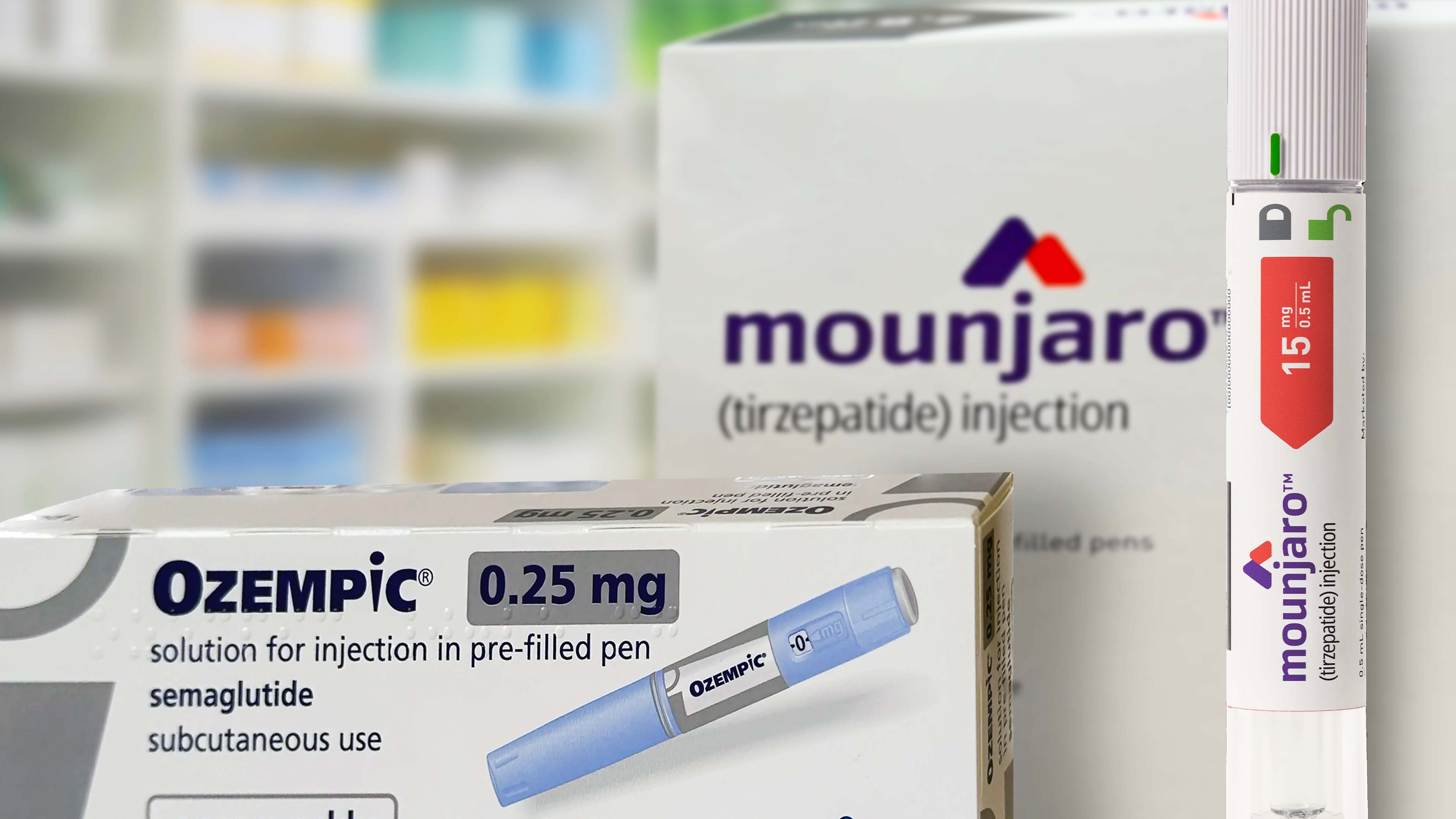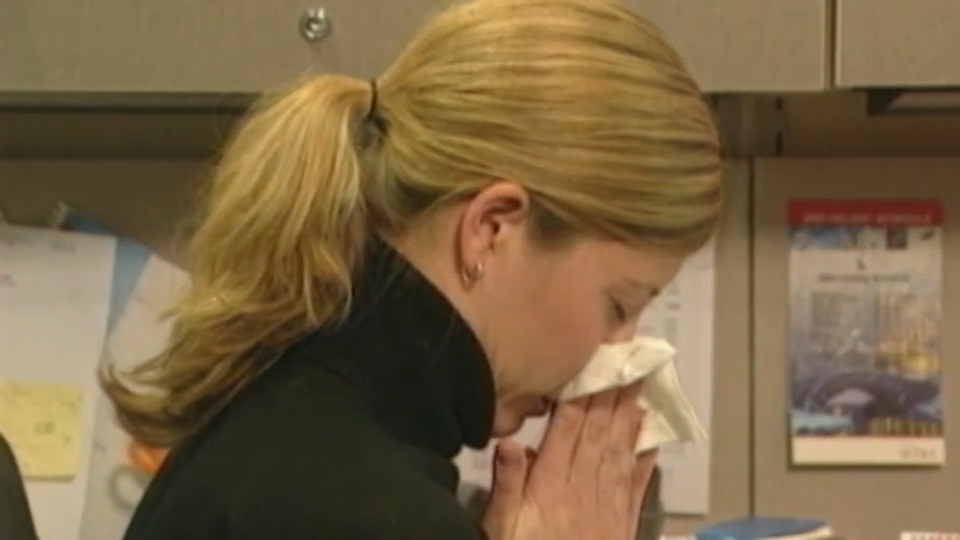There may be another reason to go out and buy that new jacket or to pull that old sweater out of the closet this holiday season.
Pay attention when a family member complains of stomach pains and fatigue during the annual holiday get-together. He or she may be suffering from more than indigestion.
Cold weather in the Bay Area may lead to a higher risk of heart attack, according to a new study.
"Heart attacks occur twice as frequently during winter months, and peak during the holidays. That's true even in our relatively mild climate," says Dr. Chad Rammohan, medical director of the Chest Pain Center at El Camino Hospital.
The study says that you simply need to stay warm to reduce your risks. So if in these terrible times you cannot afford to keep the heater then you need to keep that oh so fashionable pea coat or that old college sweatshirt on.
According to a 15-year study that looked at non-governmental hospital admissions in three California regions for cardiovascular diseases and stroke, even relatively small drops in temperature correlated with more admissions for acute myocardial infarction, angina pectoris, congestive heart failure, and stroke in the three metro areas. Similar patterns have been found in studies conducted in Europe and Asia.
In the California study, the most pronounced correlation was found in the San Francisco region.
Health
"Several factors may have contributed to differences in the associations across the different California regions," said study co-author, Kristine L. Ebi, PhD. "One possible reason may be that fewer Bay Area residents have homes that are consistently temperature-controlled than those in Los Angeles or Sacramento. A corollary is that fewer San Francisco residents may turn on furnaces or air conditioners when temperatures suddenly change within a season.
Less residential temperature control might mean that San Francisco residents experience health consequences associated with temperature."
Whoever thought that lack of central heating could be an incentive to be fashionable in your own home?
As an example, Ebi says, England has one of the highest seasonal swings in heart cardiovascular events, while much colder Finland has a substantially smaller swing. "It seems counter-intuitive, but it's probably due to the fact that Finland is well-prepared for the cold, while England has notoriously drafty homes with poor heating systems."
A number of studies also have shown that mortality is higher in regions with warmer winters--where more middle-aged and elderly adults have failed to wear protective clothing in cold weather, compared to those in colder countries.
"This suggests that protective measures against temperature changes may be of more value than people realize," said Ebi. Dr. Rammohan agrees, but adds, "While temperature most likely plays a role, we think the increased risk may be due to a combination of several factors, all of which should be taken into consideration."
Dr. Ramtin Agah, a cardiovascular disease specialist at El Camino Hospital, suggests that there are several ways local residents can reduce their risk:
- Stay warm: The body's automatic response to cold is to reduce blood flow by narrowing vessels. (This conserves body heat.) Individuals whose arteries may already be clogged with plaque have a much higher risk that a vessel will become blocked--and cause a heart attack. "Staying warm during cold spells is important to avoid higher blood pressure and clogged arteries," says Dr. Agah.
- Take vitamins--especially Vitamin D: Not only do shorter days correlate with increased depression, but they may have a more direct effect. "Research shows that heart attack patients have decreased levels of vitamin D (derived from sunlight) compared to healthy people," Dr. Agah says.
- Don't over-exert: Indoors or outdoors, exercise can be "too much of a good thing" during the winter months.
"Whether it's skiing or shoveling snow at Tahoe or doing heavy lifting in your garden, exertion combined with cold weather means elevated blood pressure--and soaring heart attack risks," Agah said. "If outdoor exertion is a must, bundle up and rest frequently. And, think twice about hitting those ski slopes if you're out of shape, especially if you have been diagnosed with heart disease or a prior heart attack."
Agah also cautions against those well-intentioned New Year's resolutions that attempt to reverse years of sedentary lifestyle in a few weeks. "If you're overweight, out of shape, have high cholesterol and blood pressure, or haven't exercised in years, first check with your doctor before hitting the gym. And if you get the go-ahead, remember that by far the most benefits from exercise are realized by those going from being sedentary to just moderate exercise."
- Step away from the buffet: The average weight gain during the holidays is only about a pound, but already-overweight people tend to gain substantially more--about 5 lbs--which can raise their already-higher risk profile. (And even a little holiday weight gain tends to stay with you for life.) "High cholesterol foods, sugary desserts and alcohol--none of them are good for heart health," Agah says.
- Don't let your stress get out of hand: Whether the holidays make you happy or sad, they're likely to bring increased anxiety due to time and financial pressures. "While the stereotype of holiday misery is overblown, it's important for anyone feeling especially anxious or depressed to reach out for help," Dr. Agah says. "Depression and anxiety correlate with increased heart risk. If your loved one is suffering from depression, make sure they get help quickly."
- Get vaccinated: When flu cases increase, so do heart attacks. In fact, experts estimate that an annual flu shot can cut some individuals' risk of heart attack in half. "Any kind of infection can raise blood pressure and white blood cell count, and when breathing is compromised by a cold or flu, it puts added pressure on the heart," said Dr. Agah.
"Anything you can do to reduce your risk of colds and flu is good news for your heart."
"Of course, one factor over which people have no control is age," Rammohan said. "And age is an independent cardiovascular risk factor that is magnified by all these other issues. So as prime heart attack season approaches it may well be that the best advice of all is the simplest: get your annual check-up and make sure it includes adequate screening for heart risks. It's the best holiday gift you can give yourself and your family."



